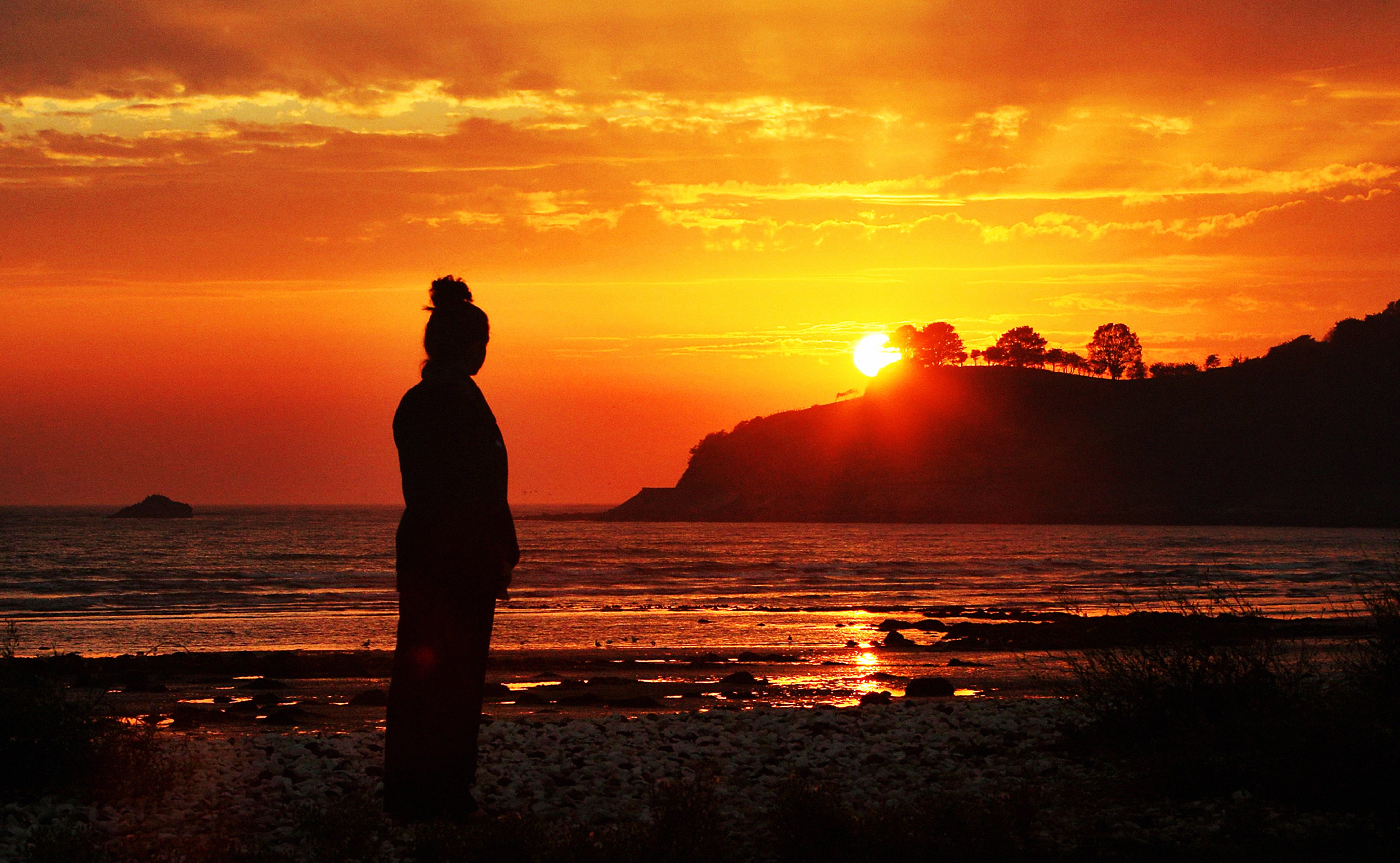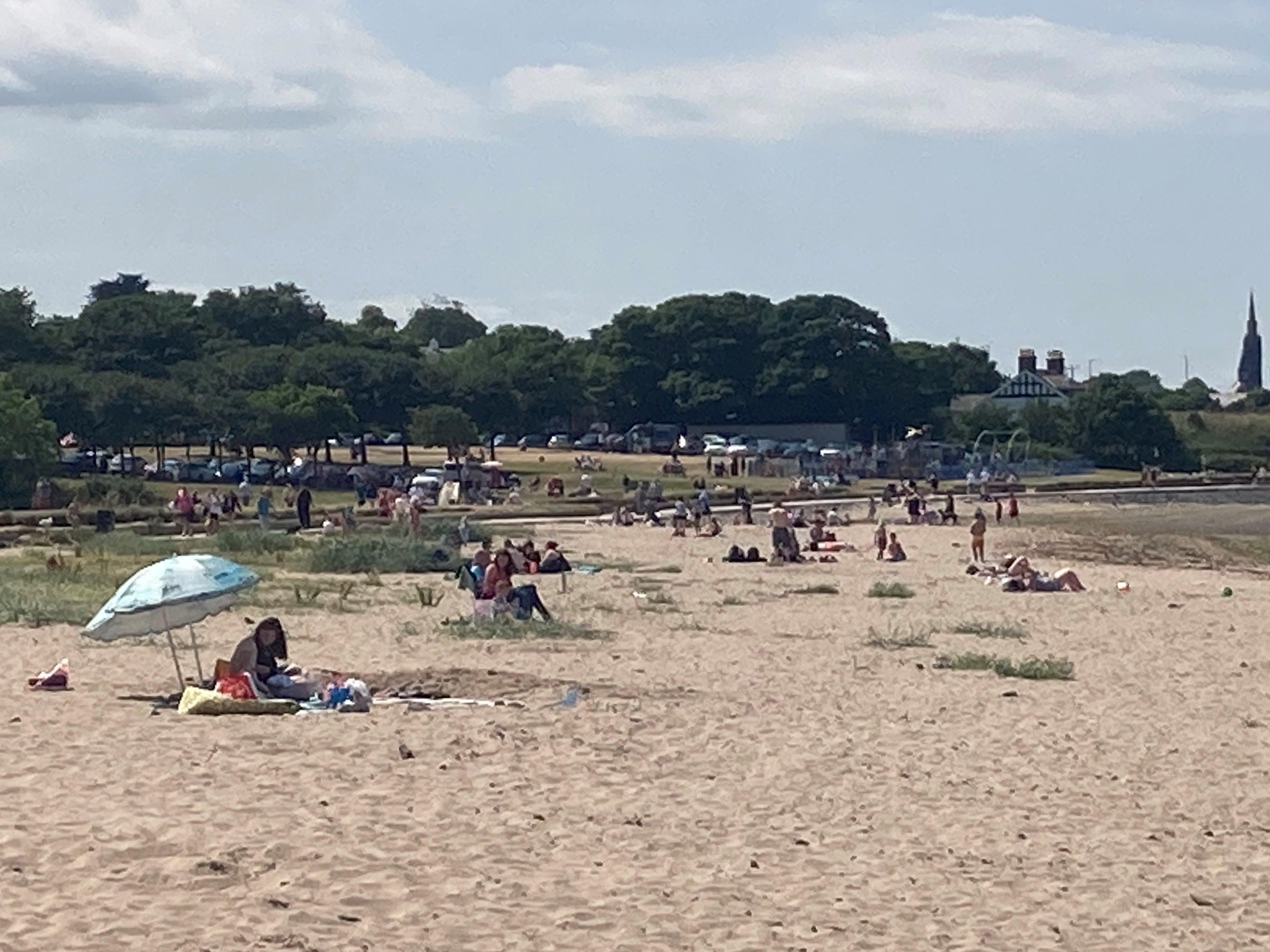
The public have been urged to call for an ambulance only in an emergency in advance of an expected heatwave in Northern Ireland.
While there is no extreme heat warning in place for the region, it is expected that temperatures could rise to 30C in some areas on Monday.
The record temperature in Northern Ireland was 31.3C in Castlederg in July last year.
The Northern Ireland Ambulance Service said it expected an increase in the number of less urgent calls it receives through the 999 system.
Just because we don’t have an extreme heat weather warning in Northern Ireland, it doesn’t mean that we aren’t at risk from dangerous UV sun rays— Dr Brid Farrell
A spokesperson said: “To help us protect the most vulnerable we would ask that the public only call if an emergency, but not to hesitate to do so if necessary.
“Before dialling 999 we would ask other options are considered for less serious issues.
“These options might include self-care or advice from other healthcare professionals such as pharmacists.
“We would also ask, in advance, that if possible patients consider self-transport to ED (emergency departments).
“While speaking to our control staff, the caller may also be asked at that stage if it is possible to transport the patient by other means with the aim of getting them to definitive care quicker when resources are stretched.”

The spokesperson added: “We want to re-emphasise that calls will be prioritised with less serious calls having to wait extended periods.
“We apologise for any delays you may experience but can assure you that we will get an ambulance to you as soon as we possibly can.”
The Public Health Agency (PHA) is urging people to protect themselves from the sun and to look out for older and more vulnerable people.
Dr Brid Farrell, deputy director of public health at the PHA, said: “It is important to look after older people and those more susceptible to potential health issues in warmer weather.
“If you have a friend or relative who is less mobile or might need a little help, make sure to check in on them.
“Help them stay hydrated with regular cold drinks, avoiding alcohol.
“Help them keep their home cool by shutting curtains if the sun is coming through and opening the windows in the evening or at night when it’s cooler.
“Encourage them to wear light, loose-fitting clothing so they’re not too hot and if you or anyone you know begins to feel sick or dizzy, keep out of the sun and seek medical advice.”
Dr Farrell added: “The PHA has also written to care home providers in Northern Ireland with advice and guidance on helping to look after residents during hotter spells of weather.
“Just because we don’t have an extreme heat weather warning in Northern Ireland, it doesn’t mean that we aren’t at risk from dangerous UV sun rays, even if it’s overcast or cloudy.”

The Royal National Lifeboat Institution (RNLI) has warned visitors to the seaside to take “extreme care”.
The charity’s head of water safety, Gareth Morrison, told the BBC: “The message is really simple this weekend, it is to respect the water if you do visit the coastline.”
“The number one piece of advice if you are heading to the coast this weekend is to visit a lifeguarded beach.
“If you’re bringing children or yourself to the water, the safest place you can possibly do that this weekend and into next week is at a lifeguarded beach, and I cannot emphasise enough that one simple action could very simply save your life.”







